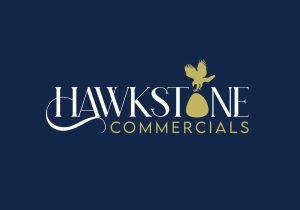Navigating longer sales cycles in a challenging economy

We are currently facing a significant period of uncertainty. Global trade tensions and extended conflicts in several parts of the world have combined to create a challenging economy. But, whilst modest growth can be seen, the rising cost of employment is being felt across the UK and beyond.
The result on businesses is increased costs and higher levels of buyer cautiousness, leading to slower sales cycles and a longer wait to get to a “Yes!”.
Despite this, in every economic cycle, some businesses do buck the trend and experience more buoyant growth. So, spend time exploring the sectors that are succeeding in the current climate and focus your sales efforts on them.
When the economy is under pressure, it also helps to refocus on what truly influences people’s purchasing decisions. People only spend money, whether personally as a consumer or on behalf of a business, when they perceive their purchase will partially or fully solve a problem they are experiencing. Given the changes in the economy and world in general, your prospects’ biggest problems may also have changed. Ask yourself:
- Am I absolutely clear on what problem my prospect wants to solve?
- How can I position my product or service to be most relevant to their challenges at this current me?
- Do I need to adapt what I offer to be more relevant to them?
However, your offering is one of many factors that can make a difference. HubSpot reports that 96% of prospects conduct their own research before engaging with a sales representative. So, make it easy for a potential customer to do their research. Does your website give them access to reviews, testimonials, product demo videos and self-assessment tools? Does it clearly provide key information about your products and an FAQ section? Are you giving them some indication of pricing or investment levels?
Consider this: When a prospect already knows the basic information about you, when they do speak with you, they are looking for a much more tailored experience. They want to build clarity on how your specific product or service will benefit them. Are you set up to give them a more bespoke approach to a meeting or conversation?
Today, developing relationships is crucial. Product knowledge is already largely covered by a potential client’s research. The sales process, therefore, needs to focus on inspiring confidence that your solution presents the best match to their needs. Buyer confidence comes from building credibility and authority, forming an authentic connection, and ultimately gaining their trust.
Be clear on your sales process. What are the important stages you need to nurture your lead through so that they know, like and trust you enough to purchase from you, and get the sale over the line? What is the ‘emotion’ journey they need to be guided through?
For a sale of significant value, the general guidance was that the sales process had seven stages. But, over the past five years, this has increased to closer to eleven. Ensure you have these additional stages in place.
Contemplate all the confidence-building opportunities you can offer a potential customer. From taking the initial brief, discovery calls and face-to-face meetings with different people within your organisation. Also, think about sharing collaterals such as case studies, video testimonials, demos, mock-ups, or taster sessions. The more tailored these are, the better.
Finally, at times when the sales process is slower, it is important to find some urgency. Discover an upcoming event, deadline, situation or opportunity that means your prospect will genuinely benefit from having your product or service earlier rather than later. Perhaps there is a seasonal consideration, such as summer, the beginning of term or the end of the tax year.
Alternatively, leverage a scarcity element, for example, is there a limited number of items available or a certain number of customers you can progress with at this time?
The economy does not like uncertainty, but there is still good business to be done and problems to be solved. The key areas to focus on are positioning your offer to meet the needs of prospects now, ensuring that you make it easy for them to do their own research, increasing the number of stages in your sales process and adding an element of urgency or scarcity. Remember the foundation of sales: good relationships are built on trust and credibility.
There is always a way to win, so listen, adapt, build confidence and close!



